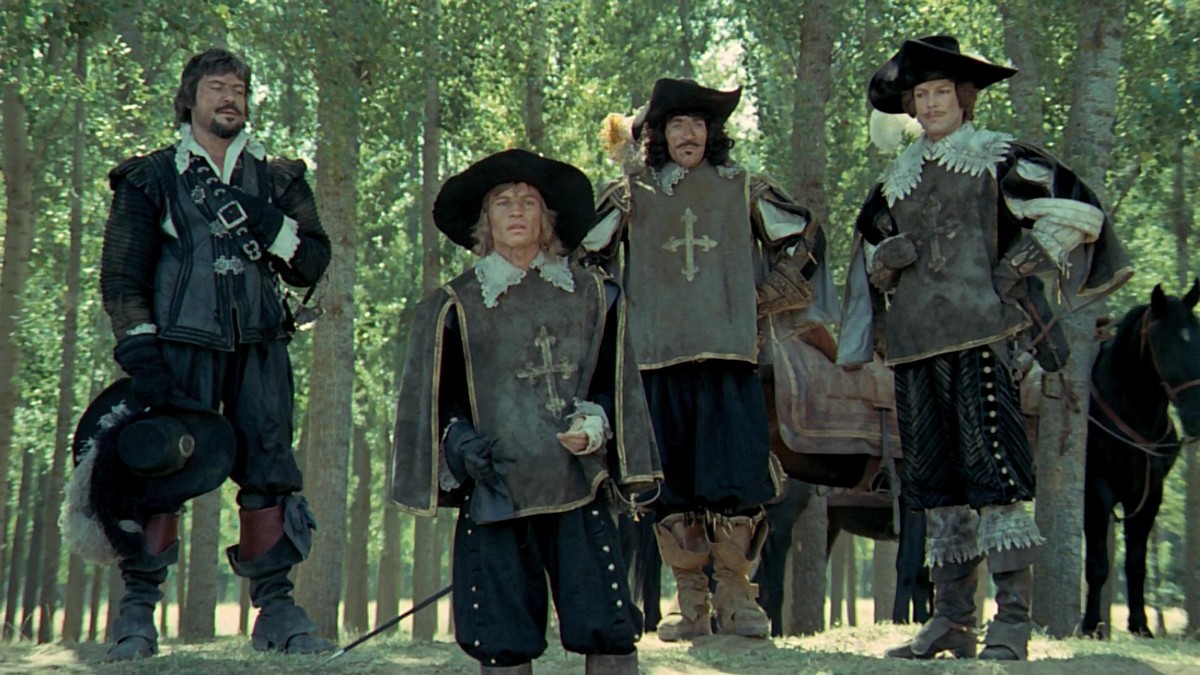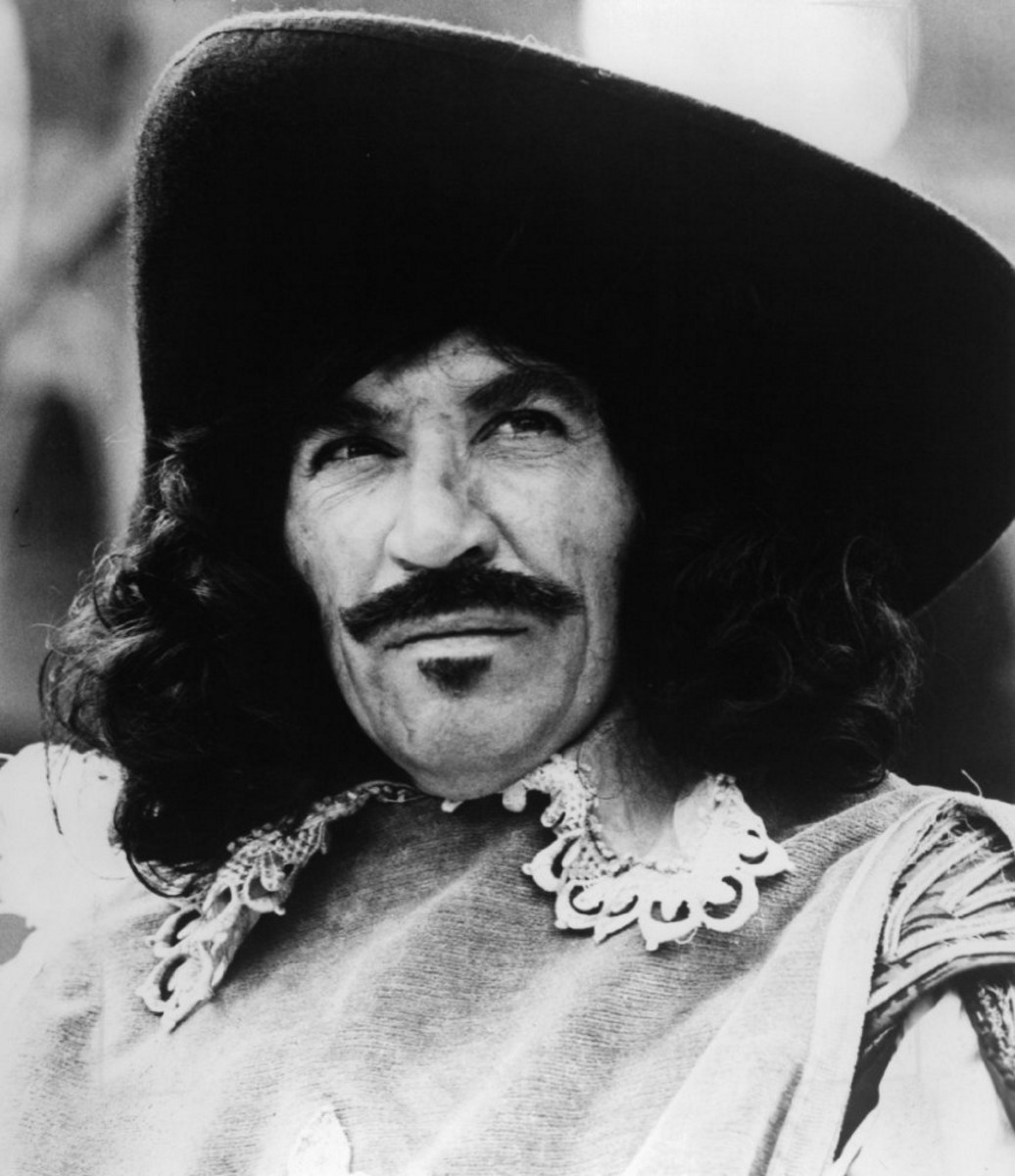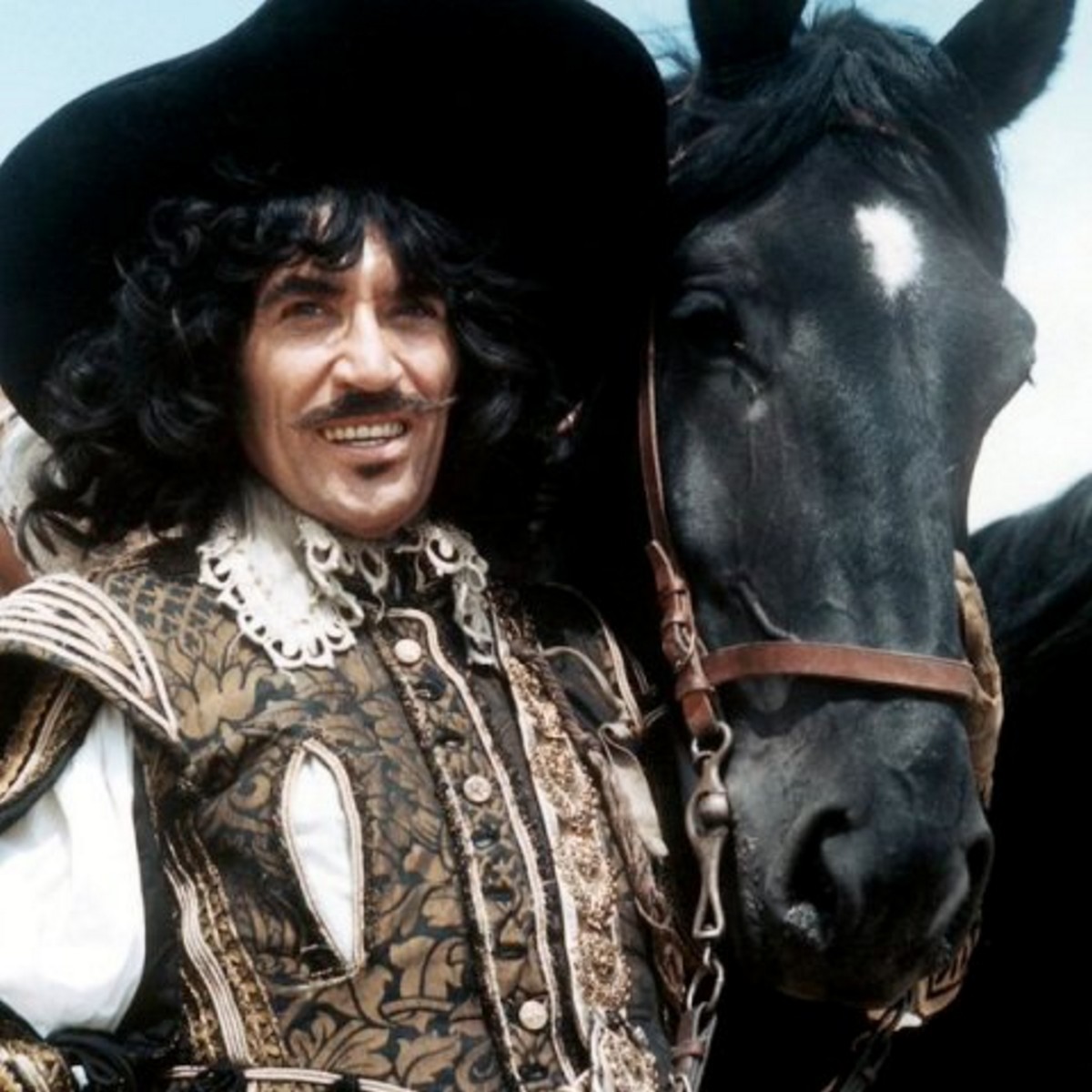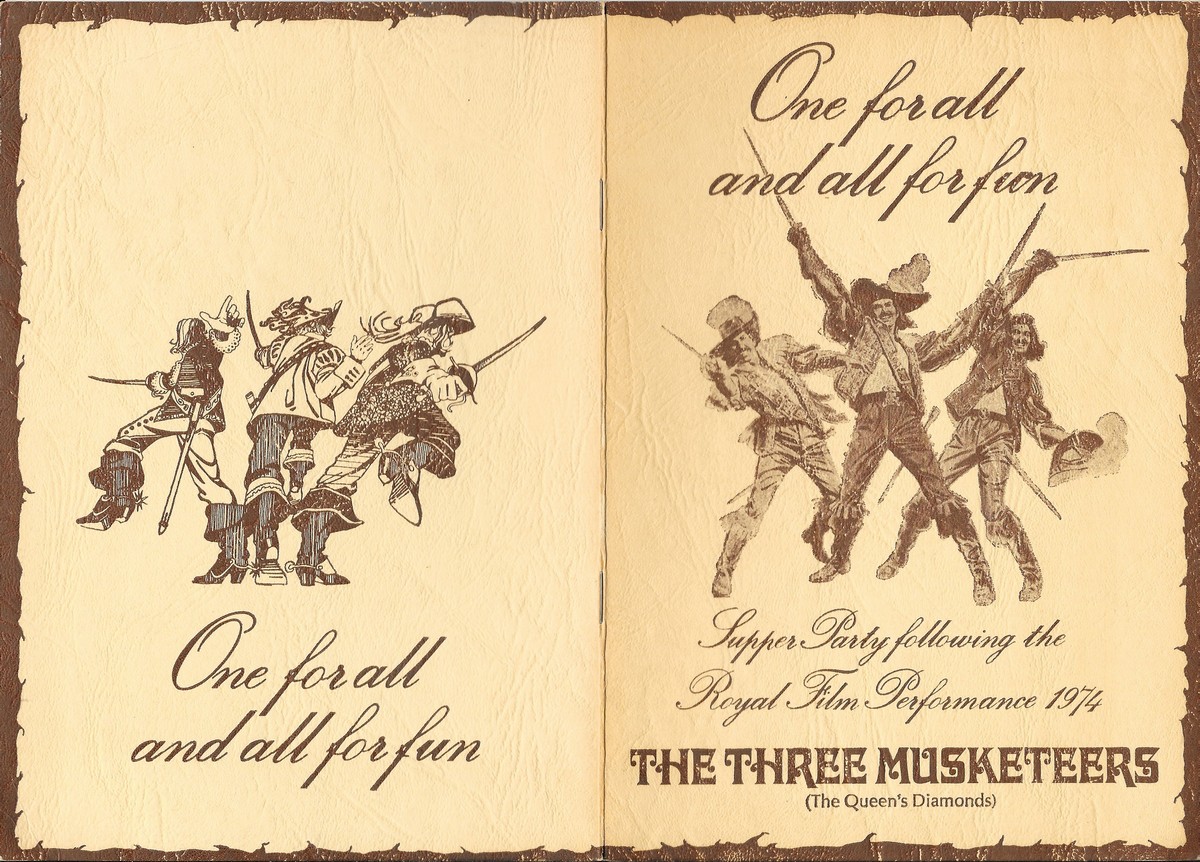The Three Musketeers
Directed by Richard LesterWriters: George MacDonald Fraser (screenplay), Alexandre Dumas (novel)
1973
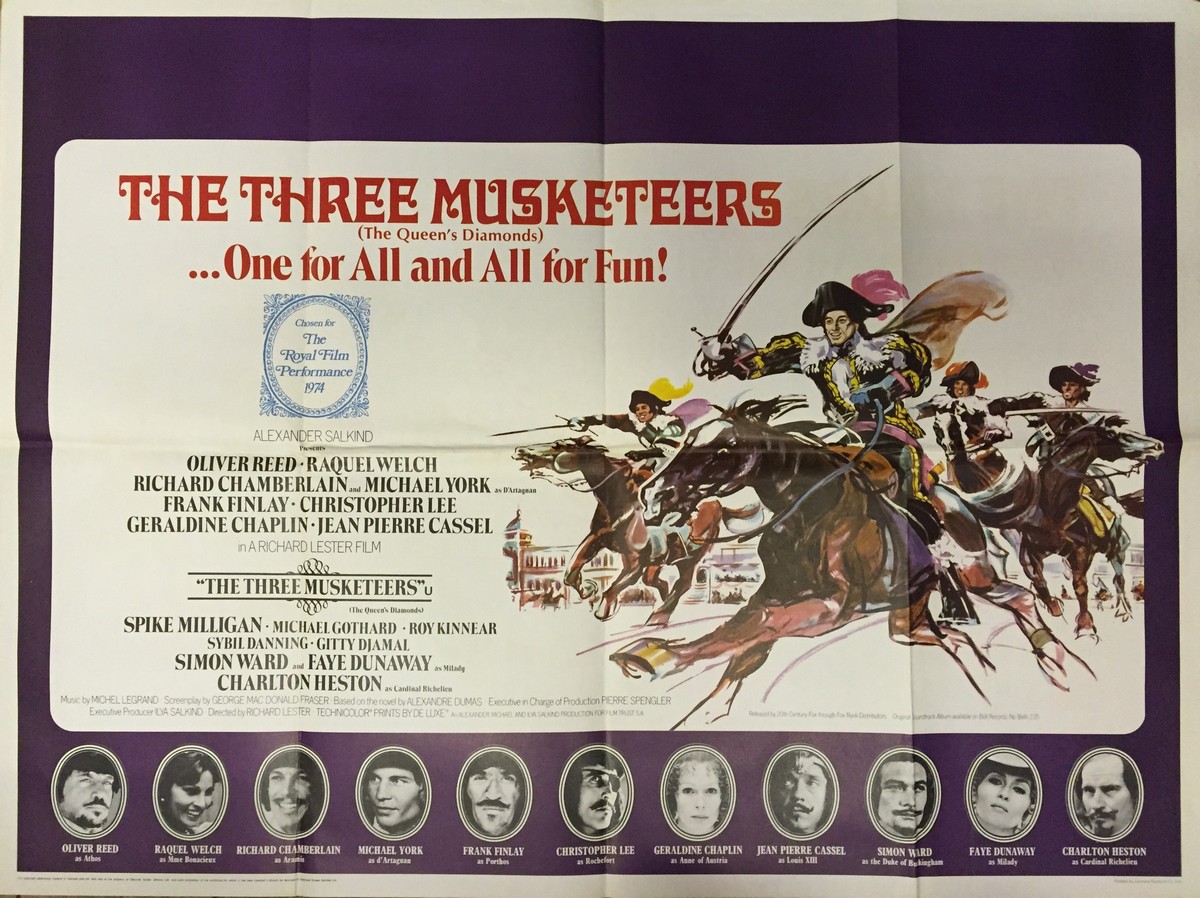
-
Oliver Reed ... Athos
Raquel Welch ... Constance de Bonacieux
Richard Chamberlain ... Aramis
Michael York ... D'Artagnan
Frank Finlay ... Porthos / O'Reilly
Christopher Lee ... Rochefort
Geraldine Chaplin ... Queen Anna
Jean-Pierre Cassel ... King Louis XIII (as Jean Pierre Cassel)
Spike Milligan ... M. Bonacieux
Roy Kinnear ... Planchet
Georges Wilson ... Treville
Simon Ward ... Duke of Buckingham
Faye Dunaway ... Milady
Charlton Heston ... Cardinal Richelieu
Joss Ackland ... D'Artagnan's Father
Nicole Calfan ... Kitty
Michael Gothard ... Felton
Sybil Danning ... Eugenie
Gitty Djamal ... Beatrice
Angel del Pozo ... Jussac (as Angel Del Pozo)
Rodney Bewes ... Spy
Ben Aris ... 1st Musketeer
William Hobbs ... Assassin
Gretchen Franklin ... D'Artagnan's Mother
Francis De Wolff ... Sea Captain
-
Based on the 1844 novel The Three Musketeers by Alexandre Dumas. It was originally proposed in the 1960s as a vehicle for The Beatles, whom Lester had directed in two other films. According to George MacDonald Fraser, Richard Lester became involved with the project when the producers briefly considered casting The Beatles as the Musketeers, as Lester had directed two films with the group. The Beatles idea fell by the wayside but Lester stayed. The film was shot on location in Spain over seventeen weeks. The film was originally intended to be an epic which ran for three hours including an intermission, but during production, it was determined the film could not make its announced release date in that form, so a decision was made to split the longer film into two shorter features, the second part becoming 1974's The Four Musketeers.
Though some actors knew of this decision earlier than others, by the time of the Paris premiere all had been informed. This incensed the actors and crew, since they were being paid for one film, and their original contracts made no mention of a second feature, resulting in lawsuits being filed to receive compensation for salaries associated with the sequel.
This led to the Screen Actors Guild requiring all future actors' contracts to include what has become known as the "Salkind clause" (named after producers Alexander and Ilya Salkind), which stipulates that single productions cannot be split into film instalments without prior contractual agreement. The film found critical success and in the UK it was the 1974 Royal Film Performance.
